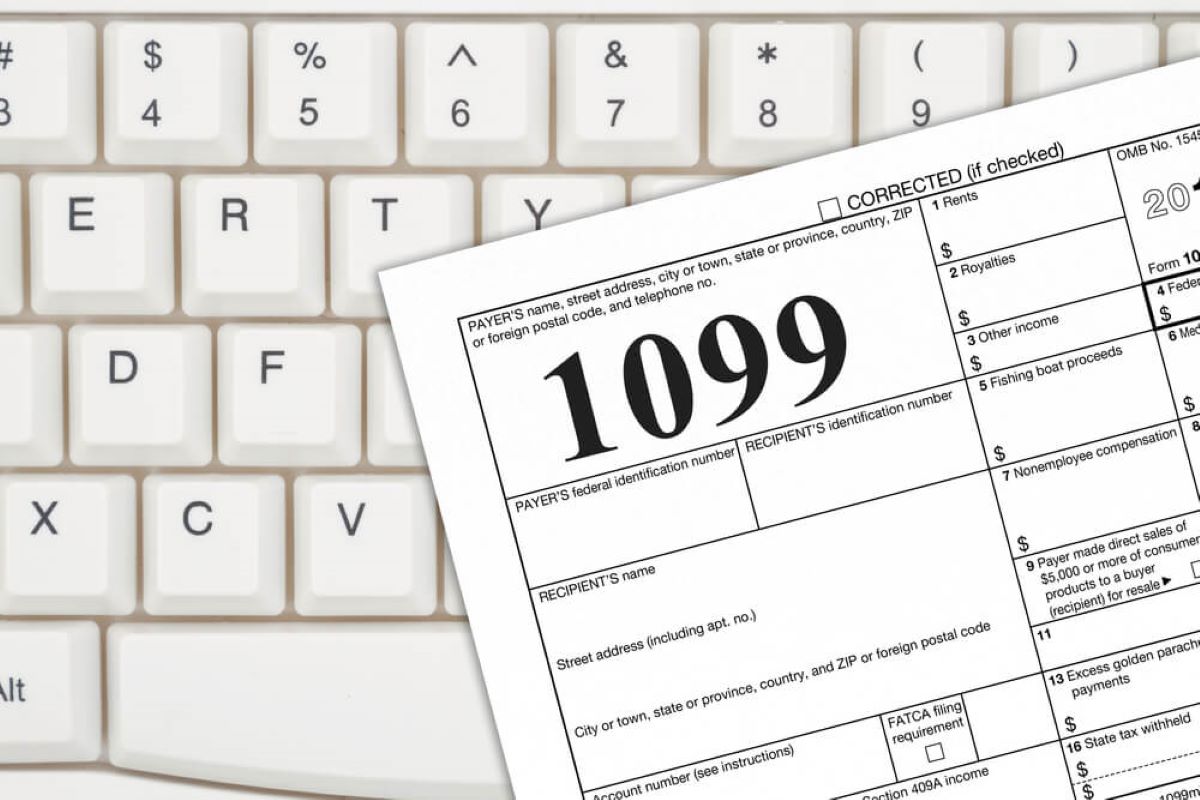

Finance
What Is Accounting Analyst
Published: October 8, 2023
Discover the role of an Accounting Analyst in the field of Finance. Gain insights on their responsibilities and skills required for this highly specialized career.
(Many of the links in this article redirect to a specific reviewed product. Your purchase of these products through affiliate links helps to generate commission for LiveWell, at no extra cost. Learn more)
Table of Contents
- Introduction
- Role of an Accounting Analyst
- Responsibilities of an Accounting Analyst
- Skills Required for Accounting Analysts
- Educational Requirements for Accounting Analysts
- Career Path for Accounting Analysts
- Salary and Compensation for Accounting Analysts
- Challenges and Trends in the Field of Accounting Analysis
- Conclusion
Introduction
The field of finance is vast and complex, and one of its key components is accounting. Accounting serves as the language of business, providing crucial insights into a company’s financial health and performance. Within the realm of accounting, there are various specialized roles, each with its own unique set of responsibilities.
One such role is that of an accounting analyst. Accounting analysts play a vital role in helping businesses make informed financial decisions and ensure accurate reporting. In this article, we will explore the role of an accounting analyst, the skills required, educational requirements, career paths, salary expectations, and the challenges and trends in the field.
As an accounting analyst, you are essentially a financial detective, diving deep into the financial data of a company to uncover valuable insights. You will be responsible for analyzing financial statements, conducting financial research, and interpreting data to provide recommendations to stakeholders, such as management or investors. Your analysis will help in evaluating the financial performance of a company, identifying areas for improvement, and making strategic decisions.
To excel as an accounting analyst, you need to possess a solid understanding of accounting principles and financial concepts. Attention to detail and analytical thinking are essential, as you will be working with large datasets and performing complex calculations. Additionally, excellent communication skills are crucial, as you will be required to present your findings and recommendations to various stakeholders effectively.
As the role of an accounting analyst is integral to the financial well-being of a company, there is a high demand for professionals in this field. Organizations across industries rely on accounting analysts to provide accurate, timely, and reliable financial information. This opens up numerous career opportunities for individuals with the right skills and qualifications.
Now that we have established the significance of the role, let’s delve deeper into the specific responsibilities of an accounting analyst.
Role of an Accounting Analyst
The role of an accounting analyst is multifaceted and requires a deep understanding of financial principles and analytical techniques. Accounting analysts are responsible for analyzing financial data, identifying trends, and providing valuable insights that aid in decision-making processes. They play a crucial role in the financial management of an organization and contribute to its overall success.
One of the primary responsibilities of an accounting analyst is to analyze financial statements, including income statements, balance sheets, and cash flow statements. They examine these documents to evaluate the financial performance of a company, identify areas of improvement, and make recommendations to enhance profitability and efficiency.
Accounting analysts also play a key role in financial forecasting and budgeting. They use historical financial data and industry trends to project future financial performance and assist in the development of strategic plans. This involves analyzing revenue and expense patterns, assessing market conditions, and considering various internal and external factors that may impact the organization’s financial outlook.
In addition to financial analysis, accounting analysts often perform cost analysis to evaluate the profitability of products, departments, or projects within an organization. They assess costs associated with production, marketing, distribution, and other operational activities to identify areas where costs can be minimized or eliminated.
Moreover, an accounting analyst is responsible for conducting compliance audits to ensure that financial transactions adhere to legal and regulatory standards. They assess internal controls, review financial records, and identify any potential risks or instances of non-compliance. The analyst may also assist in the development and implementation of control measures to mitigate risks and maintain the integrity of financial data.
Furthermore, accounting analysts provide support during financial decision-making processes by conducting financial research and preparing financial models and reports. They gather relevant industry and market data, analyze investment opportunities, and assess the financial feasibility of potential projects or acquisitions.
Overall, the role of an accounting analyst is to provide accurate and timely financial information, perform detailed analysis, and offer meaningful insights to support the decision-making process within an organization. Their expertise is crucial in ensuring financial stability, maximizing profitability, and guiding strategic initiatives.
Responsibilities of an Accounting Analyst
Accounting analysts are entrusted with various responsibilities that contribute to the financial management and success of an organization. These responsibilities revolve around analyzing financial data, conducting research, and providing insights to support decision-making processes. Let’s explore some of the key responsibilities of an accounting analyst:
- Financial Analysis: One of the primary responsibilities of an accounting analyst is to perform thorough financial analysis. This involves analyzing financial statements, calculating financial ratios, and interpreting the data to assess the financial performance of a company. They identify trends, patterns, and areas for improvement, and provide recommendations to enhance profitability and efficiency.
- Budgeting and Forecasting: Accounting analysts play a crucial role in the budgeting and forecasting process. They utilize historical financial data, market trends, and other relevant factors to develop accurate forecasts and budgets. By analyzing revenue and expense patterns, they assist in setting realistic financial goals and track the organization’s progress towards achieving them.
- Cost Analysis: Accounting analysts conduct cost analysis to evaluate the profitability of various elements within an organization. This involves assessing costs associated with production, operations, marketing, and other activities. They identify areas where costs can be reduced or eliminated, contribute to budgeting decisions, and aid in improving overall cost-efficiency.
- Compliance and Audit: Ensuring compliance with legal and regulatory standards is a critical responsibility of an accounting analyst. They conduct compliance audits, review financial records, and assess internal controls to identify any potential risks or instances of non-compliance. Accounting analysts may also assist in implementing control measures to mitigate risks and maintain the integrity of financial data.
- Financial Research and Reporting: Accounting analysts conduct financial research to support decision-making processes within an organization. They gather relevant industry and market data, analyze investment opportunities, and assess the financial feasibility of potential projects or acquisitions. Additionally, they prepare detailed financial reports and presentations, summarizing their findings and providing insights to stakeholders.
These are just a few examples of the many responsibilities that accounting analysts undertake. Their analytical skills, attention to detail, and understanding of financial concepts enable them to analyze complex financial data, contribute to strategic decision-making, and drive the financial success of an organization.
Skills Required for Accounting Analysts
Being an accounting analyst requires a diverse set of skills to effectively analyze financial data and provide valuable insights. These skills encompass technical expertise, analytical capabilities, and interpersonal abilities. Here are some of the key skills required for accounting analysts:
- Financial Acumen: Accounting analysts need a strong foundation in financial concepts, accounting principles, and financial statement analysis. They should have a comprehensive understanding of financial ratios, cash flow analysis, and the ability to interpret and analyze financial statements.
- Analytical Thinking: Accounting analysts must possess strong analytical skills to examine financial data, identify trends and patterns, and draw meaningful insights. They need to be able to dissect complex information, spot anomalies, and conduct thorough financial analysis for decision-making purposes.
- Attention to Detail: As accounting analysts work with large volumes of data and complex financial reports, attention to detail is crucial. They must be meticulous in their work, ensuring accuracy in calculations and spotting any discrepancies or errors in financial data.
- Problem-Solving Abilities: Accounting analysts encounter various financial challenges and problems that require creative problem-solving skills. They should be able to think critically, evaluate alternative solutions, and recommend effective strategies to address financial issues or improve financial processes.
- Technical Proficiency: Proficiency in accounting software and financial analysis tools is essential for accounting analysts. They should be skilled in using software such as Excel, financial modeling tools, and ERP systems to efficiently manage and manipulate financial data.
- Communication Skills: Effective communication skills are vital for accounting analysts. They need to be able to explain complex financial concepts and analysis findings to stakeholders in a clear and concise manner. Strong written and verbal communication skills are necessary for presenting reports, collaborating with teams, and providing recommendations.
- Business Knowledge: Accounting analysts should have a solid understanding of the industry and business environment in which they operate. They need to be aware of market trends, regulatory changes, and industry-specific financial practices to provide valuable insights and make informed recommendations.
- Time Management: Accounting analysts often have multiple tasks and responsibilities to manage simultaneously. The ability to prioritize tasks, meet deadlines, and efficiently allocate time is crucial for maintaining productivity and delivering quality work.
These skills form the foundation for success as an accounting analyst. Combining technical expertise with analytical thinking, effective communication, and problem-solving abilities enables accounting analysts to provide valuable financial analysis and support decision-making processes.
Educational Requirements for Accounting Analysts
To pursue a career as an accounting analyst, a strong educational foundation is essential. While educational requirements may vary depending on the organization and the specific role, here are the common educational requirements for accounting analysts:
- Bachelor’s Degree in Accounting or Finance: Most employers require a minimum of a bachelor’s degree in accounting or finance. A degree in accounting provides a comprehensive understanding of financial reporting, auditing, taxation, and other relevant topics. A finance degree focuses on financial management, investments, and financial decision-making. Both degrees provide a solid foundation for a career as an accounting analyst.
- Professional Certification: While not always a requirement, many accounting analysts pursue professional certifications to demonstrate their expertise and enhance their career prospects. The most common certification for accounting professionals is the Certified Public Accountant (CPA) designation. Other certifications, such as the Chartered Financial Analyst (CFA) or Certified Management Accountant (CMA), can also be valuable additions to the resume.
- Master’s Degree (Optional): Pursuing a master’s degree in accounting, finance, or business administration can provide additional knowledge and expertise in the field. A master’s degree can also help individuals stand out in a competitive job market and may lead to more advanced career opportunities.
- Continuing Education: The field of accounting is constantly evolving, with new regulations, technologies, and practices emerging. Accounting analysts are expected to stay updated with the latest industry trends and developments. Therefore, continuing education through workshops, seminars, and professional development courses is crucial to maintain and enhance their skills.
While a solid educational background is important, practical experience is equally valuable for accounting analysts. Internships, cooperative education programs, or entry-level positions in accounting firms, finance departments, or auditing firms can provide hands-on experience and a deeper understanding of the industry.
In addition to formal education, accounting analysts must possess a strong drive for learning and a commitment to professional growth. They should stay informed about changes in accounting standards and regulations, develop expertise in data analysis tools and software, and continuously seek opportunities to expand their knowledge and skills.
Overall, a combination of relevant education, professional certifications, and ongoing learning is instrumental in building a successful career as an accounting analyst, and demonstrates a commitment to excellence in the field.
Career Path for Accounting Analysts
The career path for accounting analysts offers opportunities for growth and advancement as professionals gain experience and expertise in the field. While individual career paths may vary based on personal aspirations, organizational structures, and industry specialization, here is a general outline of the career progression for accounting analysts:
- Entry-Level Analyst: Many accounting analysts begin their careers in entry-level positions, such as junior accountants or financial analysts. In these roles, they gain foundational knowledge in accounting principles, financial analysis, and data management. They support more senior analysts and contribute to routine financial tasks, such as financial statement preparation, budgeting, and financial reporting.
- Accounting Analyst: After gaining some experience and expertise, individuals can progress to become accounting analysts. In this role, they take on more advanced responsibilities, such as conducting complex financial analysis, providing insights and recommendations, and supporting decision-making processes. Accounting analysts may specialize in specific areas, such as cost analysis, financial planning and analysis, or compliance and audit.
- Senior Accounting Analyst: With continued experience and demonstrated proficiency, accounting analysts can move into senior positions. Senior accounting analysts are responsible for leading and managing financial analysis projects, mentoring junior analysts, and presenting financial reports and findings to senior management. They may also be involved in strategic planning, budgeting, and forecasting activities, providing insights and recommendations based on their expertise.
- Managerial Roles: Accounting analysts who aspire to leadership roles can progress into managerial positions, such as accounting manager or finance manager. In these roles, they oversee and manage a team of analysts, coordinate financial operations, ensure compliance with accounting standards, and contribute to high-level decision-making processes. Managerial roles often involve a broader range of responsibilities, including financial strategy development, risk management, and stakeholder engagement.
- Specialization or Advanced Roles: Accounting analysts can also choose to specialize in specific areas of accounting or pursue advanced roles within their field of expertise. This may include becoming a tax analyst, financial planning and analysis manager, forensic accountant, or risk analyst. Specializing in a particular area allows accounting professionals to deepen their knowledge and become subject matter experts in that domain.
- Executive Positions: For ambitious accounting analysts who aspire to top leadership positions, the career path may lead to executive roles such as Chief Financial Officer (CFO) or Chief Accounting Officer (CAO). These positions involve significant strategic responsibility, overseeing the financial operations of an organization, and playing a crucial role in overall business decision-making and financial management.
The career path for accounting analysts is not linear and may involve lateral moves, cross-functional experiences, or transitions to different industries. Continuous professional development, gaining additional certifications, and staying updated with industry trends are essential for career advancement and success in the field of accounting analysis.
Salary and Compensation for Accounting Analysts
Accounting analysts are in high demand due to their expertise in financial analysis and decision support. As a result, they are often well-compensated for their skills and contributions. The salary and compensation for accounting analysts can vary based on factors such as experience, education, location, industry, and the size of the organization. Here are some considerations regarding the salary and compensation for accounting analysts:
Salary Range: The salary range for accounting analysts typically starts at around $50,000 to $60,000 per year for entry-level positions. With experience and career progression, accounting analysts can earn salaries in the range of $70,000 to $100,000 or more annually.
Experience: Experience plays a significant role in determining the salary of an accounting analyst. In general, as professionals gain more years of experience and demonstrate expertise in financial analysis, their earning potential increases. Organizations value the insights and recommendations provided by experienced accounting analysts and are willing to offer higher compensation to attract and retain top talent.
Education and Certifications: Higher levels of education, such as a master’s degree in accounting or finance, can also contribute to increased compensation. Additionally, obtaining professional certifications such as the Certified Public Accountant (CPA) or Chartered Financial Analyst (CFA) designation may lead to higher salary offers, as these certifications demonstrate advanced knowledge and expertise.
Location: The geographical location of a job can impact the salary of an accounting analyst. Major cities or regions with a higher cost of living and a strong demand for accounting professionals may offer higher salaries to attract talent. However, it’s important to consider the local market conditions and the industry norms when evaluating salary expectations.
Industry and Company Size: The industry in which an accounting analyst works can also affect their compensation. Certain industries, such as finance, consulting, or healthcare, may offer higher salaries compared to other sectors. Additionally, the size and financial success of the organization can influence compensation levels, as larger companies or those with higher revenues may have larger budgets for employee salaries and benefits.
Bonuses and Benefits: In addition to base salary, accounting analysts may also be eligible for performance-based bonuses or profit-sharing based on their individual and team contributions. Other benefits such as health insurance, retirement plans, paid time off, and professional development opportunities can further add to the overall compensation package.
It is important for accounting analysts to research industry benchmarks, assess their qualifications and experience, and negotiate their salaries based on their individual circumstances and the market conditions. Additionally, career growth, increased responsibilities, and additional certifications can contribute to salary growth and potential higher compensation in the long run.
Challenges and Trends in the Field of Accounting Analysis
The field of accounting analysis is constantly evolving, driven by changes in technology, regulations, and industry practices. Accounting analysts must stay abreast of these challenges and trends to effectively navigate the complexities of their role. Here are some key challenges and trends in the field of accounting analysis:
1. Technological Advancements: Accounting analysts are experiencing rapid changes in technology, which have a profound impact on their work. Automation, artificial intelligence, and machine learning are transforming routine tasks and data analysis, allowing accounting analysts to focus more on strategic decision-making and data interpretation. However, embracing new technologies and developing the skills to effectively utilize them poses a challenge for accounting professionals.
2. Data Management and Analysis: With the increasing volume and complexity of financial data, accounting analysts are faced with the challenge of managing and analyzing vast amounts of information. They must have the skills to access, clean, and interpret data effectively, employing advanced data analysis techniques to extract meaningful insights and actionable recommendations.
3. Regulatory Changes: The field of accounting is heavily regulated, and accounting analysts must stay up to date with changes in accounting standards, tax laws, and financial reporting requirements. Adapting to these regulatory changes and ensuring compliance can be a challenge, as failure to comply with regulations may result in penalties or reputational damage for both the analyst and the organization.
4. Ethical Considerations: Accounting analysts often face ethical dilemmas in their work, particularly when it comes to financial reporting, conflict of interest, or data confidentiality. Upholding high ethical standards and maintaining professional integrity is crucial for accounting analysts to maintain the trust of stakeholders and ensure accurate and reliable financial information.
5. Globalization and International Accounting: The increasing globalization of business operations and the adoption of International Financial Reporting Standards (IFRS) present challenges for accounting analysts. They must possess an understanding of international accounting practices and be able to navigate the complexities of reporting financial information across different jurisdictions and cultural contexts.
6. Financial Analysis for Sustainability: There is a growing emphasis on incorporating sustainability considerations into financial analysis. Accounting analysts need to assess the environmental, social, and governance (ESG) performance of companies and incorporate this information into their analysis. This trend requires accounting analysts to develop new skills and frameworks for evaluating the long-term value and risk associated with sustainable business practices.
7. Collaboration and Communication: Accounting analysts are increasingly expected to collaborate with cross-functional teams and communicate complex financial information to non-financial stakeholders. Strong communication skills, both written and verbal, are essential for effectively presenting financial analysis findings and recommendations in a clear and understandable manner.
As the field of accounting analysis continues to evolve, it is essential for professionals to adapt, embrace new technologies, and stay informed about emerging trends and challenges. By doing so, accounting analysts can navigate these challenges and position themselves as trusted advisors and strategic partners in their organizations.
Conclusion
Accounting analysis plays a critical role in the financial management of organizations, providing valuable insights that shape decision-making processes. Accounting analysts are skilled professionals who possess technical expertise, analytical thinking, and effective communication abilities. They have the responsibility of analyzing financial data, conducting research, and providing recommendations to support strategic initiatives.
Throughout this article, we have explored the various aspects of being an accounting analyst, including their role, responsibilities, required skills, educational requirements, career path, salary expectations, and industry challenges and trends. Accounting analysts are in high demand, and opportunities for career growth are abundant for those who possess the right skills, qualifications, and dedication to professional excellence.
As the field of accounting analysis continues to evolve, accounting analysts must stay adaptable and embrace technological advancements, such as automation and data analytics, to enhance their analytical capabilities. They must also stay updated with industry regulations and best practices, and proactively seek opportunities for professional development and continuing education.
In conclusion, the role of an accounting analyst is integral to the financial success of organizations. Their expertise in financial analysis, combined with their ability to interpret and communicate complex financial information, allows for informed decision-making and strategic planning. By staying current with industry trends, embracing new technologies, and maintaining high ethical standards, accounting analysts can thrive in their careers and contribute significantly to the financial well-being of the organizations they serve.














